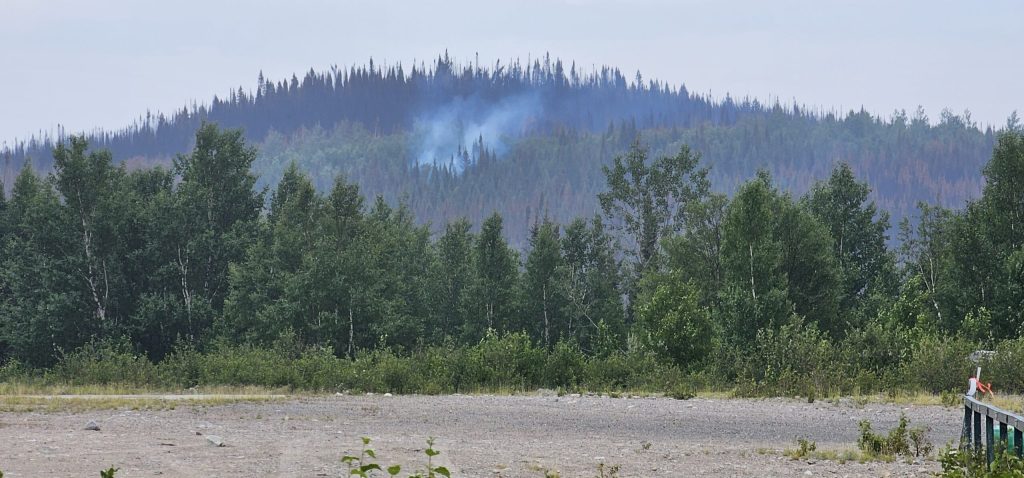Advanced Drones Deployed to Detect Hidden Hotspots in Quebec’s Bushfire Zones
In response to one of the most severe bushfire seasons on record, Canadian firefighters in Quebec are utilizing advanced drone technology from Australian company Carbonix. The initiative aims to combat the devastating wildfires that have plagued the region, particularly in remote and challenging terrains.
Addressing the Challenge of Zombie Fires
This year’s bushfire season in Canada is set to rival the intensity of 2023, when 45.7 million acres were destroyed by fire—a record-breaking area more than twice the size of Portugal. Quebec’s northern regions are particularly susceptible to “zombie fires,” which are deeply embedded root fires that can reignite weeks after initial suppression efforts. These fires pose a significant challenge due to the difficulty of monitoring and controlling them in remote areas.
To tackle this problem, Quebec-based Exo Drone, supported by US-based ArgenTech Solutions, has deployed Carbonix’s all-electric fixed-wing UAS (Uncrewed Aerial Systems), the Volanti. The Volanti excels in conducting rapid aerial surveys across vast and rugged landscapes. Equipped with sensors capable of photogrammetry, infrared (IR) with radiometric data, intelligence, surveillance, and reconnaissance (ISR), and multi-spectral imaging, the Volanti is the first Australian fixed-wing vertical take-off and landing (VTOL) drone to execute a fully automated Beyond Visual Line of Sight (BVLoS) mission, gathering commercially valuable data.
Enhancing Firefighting Capabilities
The technology has been rigorously tested in collaboration with the ANU-Optus Bushfire Research Centre of Excellence and the ACT Rural Fire Service (RFS) in Australia. This partnership, part of a five-year project, aims to enhance situational awareness for wildfire detection. The Volanti proved particularly effective in identifying wildfires sparked by lightning strikes, which can escalate into severe threats if not promptly addressed.
Carbonix CEO Philip van der Burg expressed pride in the company’s contribution to firefighting efforts in Canada. “Our technology is doing a job that is usually done by firefighting crews on the ground or in helicopters, at huge expense, with environmental impact, and at significant risk to human life,” he said. “The aim is for these fires to be spotted in their infancy and contained before they become the mega blazes.”
Collaborations and Future Goals
The collaboration between Carbonix, Exo Drone, and ArgenTech Solutions began last year, focusing on surveying, mapping, and analyzing active wildfires across Canada. The companies are integrating advanced sensors and technologies, including an Automated Flight Following module. This innovation allows the UAS to operate alongside crewed aircraft during the day, a departure from the typical practice of flying drones only at night in Canada and the US.
ArgenTech CEO Brian Veroneau highlighted the significance of these partnerships. “We’re very pleased with the work we’ve been able to accomplish in Canada,” he said. “Our collective goal is to bring our end-to-end solutions to the rest of Canada to support the wildland fire suppression and monitoring efforts countrywide.”
Exo Drone Executive Manager Jean-Francois Pominville echoed this sentiment, emphasizing the importance of these collaborations in the company’s expansion strategy. “They have assembled the best team of knowledgeable, dedicated, and creative people to provide custom integration and engineering services, combined with the best performing aircrafts available,” he said. “We couldn’t be more satisfied and prouder to have them at our side in our operations as integrated business partners.”
Carbonix estimates that replacing conventional crewed aircraft and ground crews with Volanti drones could lead to an 80% reduction in operating costs and a 98% reduction in CO2 emissions, while also improving safety and efficiency. This deployment in Canada marks a significant step forward in utilizing drone technology for effective and sustainable wildfire management.
Read more:

